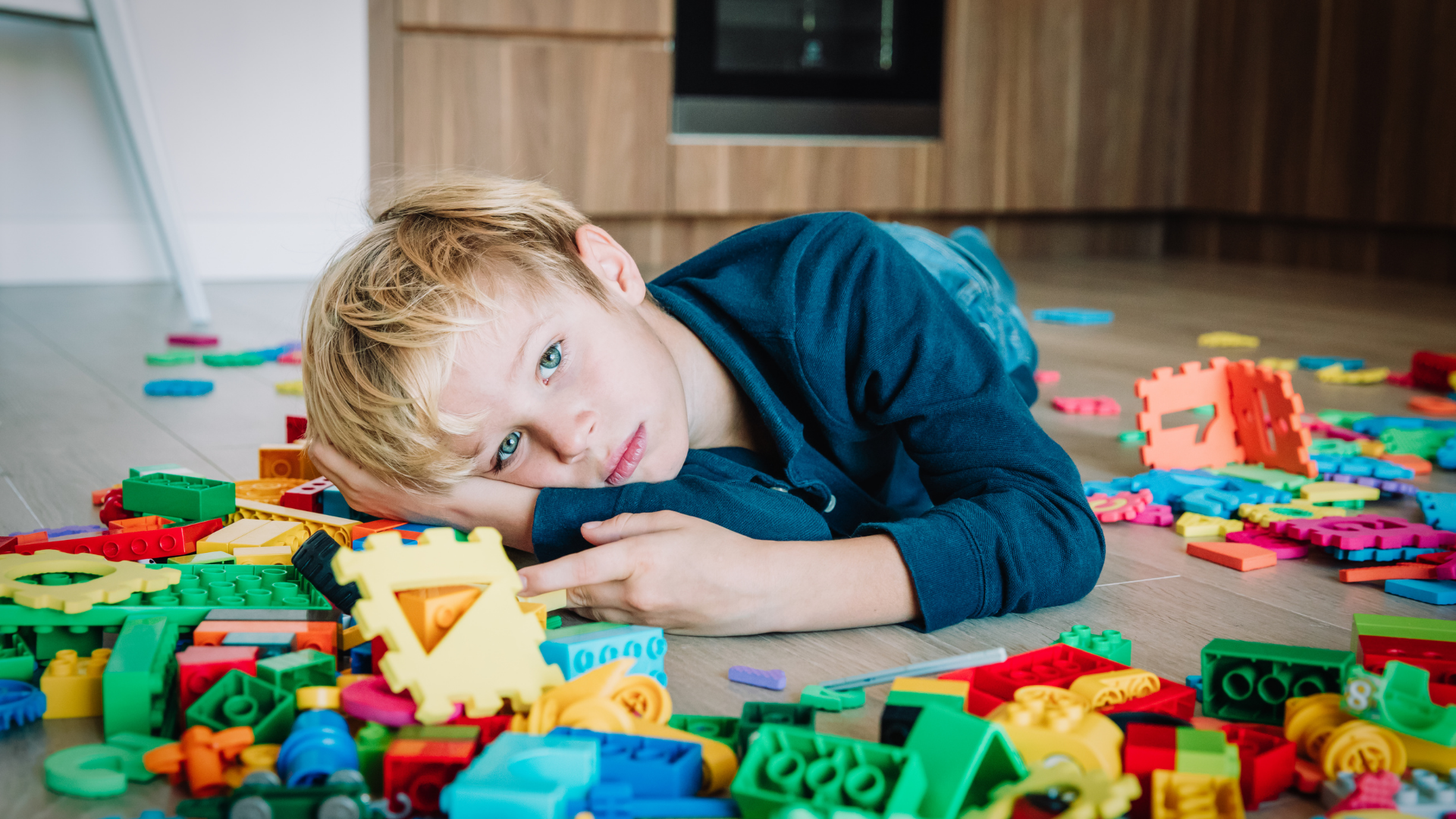
How to reduce anxiety in toddlers - Covid-19 consequences
Mar 20 , 2022
Toys for toddler's anxiety relief?
Have you ever seen your toddler walking from the table back and forth just to touch something, do something, with their hands, seeking something to do? Why do they act like this, may you wonder? Your toddler just seeks extra sensory input from the environment that he hasn't received yet.
It is hard for toddlers, mainly those hyperactive, to focus and find ways to decrease anxiety. There are moments when kids feel anxious, impatient, or nervous. That's when they need something to redirect their attention, relax, and ease stress. Toys that involve small movements help relieve stress, providing temporary relief.
Toys that help with stress relief in toddlers come in various forms, most famous being the fidget spinner, stress balls, or cubes. Studies have shown that these types of toys positively influence fine motor skills. If your toddler can control their movements when stressed, they can also improve focus. They learn better when their hands are active.
Sensory toys help with focus, calming and support active learning and listening. Also, sensory toys are suitable for dexterity and the development of small hands' muscles. Offering appropriate toys as soothing tools can make a huge difference as they learn to manage their anxiety.
Busy Boards are useful to calm a toddler having a tough time. Working on the maze, spinning the wheel, or pressing the switch can help calm toddlers any time of the day. The sound, the repetition, and the texture all work to induce a calm and relaxing moment. Other toys that are well known for their calming effect are the fidget spinners, pop-it, water beads, stress balls, kinetic sand, or finger painting. All these can help soothe anxiety away.
Kids coping with the Coronavirus!
Their daily life has been disrupted due to the unknown virus that it's nonstop on TV, parents talk about it, and even in the park, they can hear news about it. It's essential to help them feel secure now that we are at the end of the pandemic. Social isolation, sedentary lifestyle, parenting struggles during the covid-19, stressful situation, increased screen time affect kids of all ages. It's hard being stuck at home for so long and now not knowing how or when they will get back to school, park, playdates, or grandma's birthday. All these questions may worry your child, giving him a sense of anxiety.
Anxiety led by the pandemic has important effects on the daily functioning and mental health of our kids and ourselves as well. To avoid long-lasting effects on our kids, it's crucial to have the correct information and strategies to help with anxiety in our children.
It's crucial to be modeling how to react in stressful situations and deal with anxiety. Keep your family safe and sound by being thoughtful about what you are reading, focusing on the present, and relying on routines. Your toddler might not express how he is feeling, so use different games and charts to describe their level of anxiety. If you feel like the little one is having a hard time, it's been almost two years in the pandemic. Almost everyone has had their hard time. Try to structure their day with fun activities, chores, and free time. Please find a way for your toddler to socialize with their peers or friends, like outdoor activities, to get back to normal easily (the normal before Covid-19). Encourage just being in the moment by focusing on things they can do and control, like setting the dinner table, putting their toys away, washing their teeth, and doing things they can do to take care of themselves and those around them. It's important to maintain routines and empower the child, having a sense of predictability to make the little one feel safe. The anxiety can be reduced by giving the toddler more control over his daily routines and offering him more choices.
Virtual autism and Covid-19!
The COVID-19 increased screen time for kids, which led to an increase in children with virtual autism spectrum disorder. Also, what led to the increase in screen time is social distancing and other measures to control the spread of the virus. The context of the pandemic made it challenging for parents, and the use of screen time has been a way to cope with the restrictions. The more they spend time in front of a screen, the less they interact socially with other human beings, leading to autistic-like behavior.
Children need to use all their senses, and most importantly, they need face-to-face interaction with their caring adults to develop crucial skills and needs.
Recommendations:
Infants (under 12 months): screen time not recommended, not be strained for more than an hour (high chairs, stroller, etc.), be physically active.
Children age 1 and 2: should spend at least 2-3 hours of moderate to vigorous-intensity physical activity (in a day, in a variety of types of physical activities), no to be restrained for more than an hour (high chair, strollers, etc.), screen time should be less than 1 hour.
Children age 3 and 4: should spend at least 3 hours of moderate to vigorous-intensity physical activity (in a day) more is better, no be restrained for more than an hour (high chair, strollers, etc.), screen time should be less than 1 hour.
